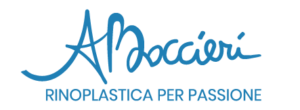Per quanto riguarda le procedure chirurgiche programmate per l’intervento, le spiego al paziente con semplicità, facendogli comprendere le eventuali difficoltà del suo caso. Anche una descrizione dettagliata del periodo post-operatorio e dei tempi di ripresa è fondamentale. Prepara il paziente a quello che lo aspetta. Va sottolineato che durante la visita o le visite preoperatorie “il tempo non esiste”: tutto deve essere bene definito e compreso sia da parte del medico che del paziente senza alcuna fretta e approssimazione. Per la preparazione all’intervento si prescrivono le seguenti analisi: azotemia, glicemia, creatininemia, bilirubina totale e frazionata, transaminasi (G.O.T – G.P.T.), C.P.K., γGT, colinesterasi, elettroliti, quadro proteico, emocromo completo con formula, conta piastrine, tempo di protrombina, P.T.T., INR, fibrinogeno; Esame urine; Elettrocardiogramma; Rx torace.
Un colloquio con l’Anestesista o una visita, se indicata, fanno anch’esse parte della preparazione all’intervento di rinoplastica. Da circa un mese prima dell’intervento, per ridurre il sanguinamento, il paziente deve sospendere l’assunzione dell’aspirina e della pillola anticoncezionale e deve segnalare per tempo l’uso di altri farmaci che vadano eventualmente sospesi.
